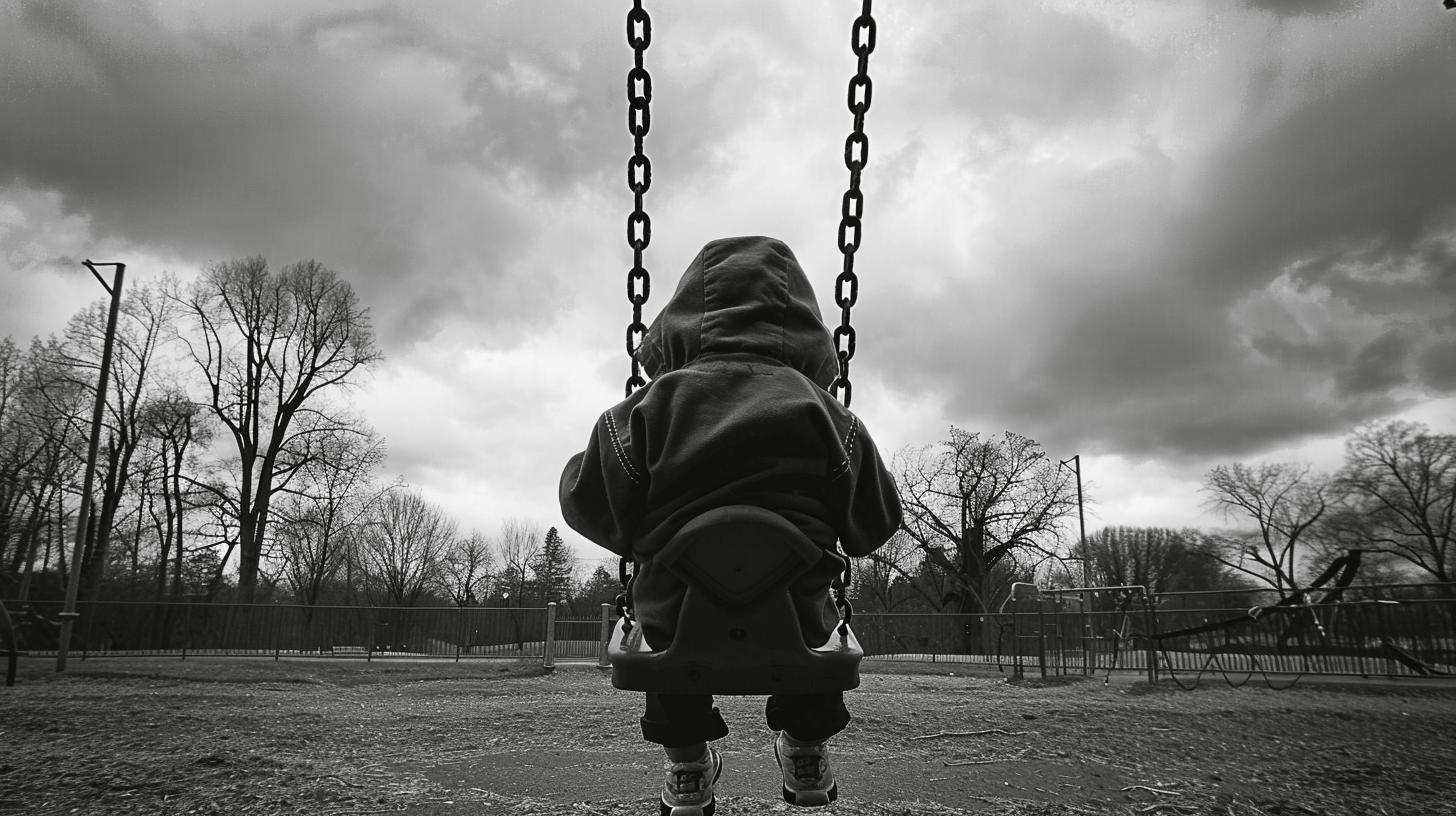Can criticizing your child really shape their entire future? Shame-based parenting, which uses guilt and humiliation to discipline, often leads to long-lasting negative effects. This form of parenting not only damages a child’s self-worth but also affects their emotional and psychological well-being. In this article, Heads Up Mom dives deep into the intricacies of shame-based parenting, explores its harmful impacts, and offers actionable strategies to foster healthier parenting practices. Understanding these dynamics is crucial for raising confident and well-adjusted children. Let's break the cycle—starting now.
Understanding Shame-Based Parenting
Shame-based parenting involves using guilt, humiliation, and criticism to control or discipline children. This approach can manifest in various behaviors that undermine a child's sense of self-worth.
Common behaviors include:
- Name-Calling: Parents may call their children derogatory names, leading to feelings of inadequacy.
- Unfavorable Comparisons: Comparing a child unfavorably to others, such as siblings or peers, can create a sense of inferiority.
- Blaming: Making children feel responsible for adult problems or family issues, which can burden them with undue guilt.
Real-life examples provide tangible insights into these harmful behaviors. For instance, a parent might publicly berate a child for a minor mistake, causing the child to feel humiliated. Another example could be a parent constantly criticizing a child's efforts, no matter how hard they try, leading the child to believe they can never meet expectations.
Signs of a shame-based family environment include a critical, perfectionistic atmosphere where children feel they must constantly prove their worth. These families often exhibit:
- High Criticism: Frequent negative feedback and little praise.
- Perfectionism: Unrealistic expectations that children must meet.
- Emotional Distance: Lack of emotional support and understanding.
Understanding these characteristics and behaviors is crucial for recognizing and addressing shame-based parenting. The impact can be profound, affecting a child's emotional and psychological development, leading to issues like low self-esteem and anxiety. Recognizing these signs early can help in taking steps toward healthier parenting practices.
Psychological and Emotional Effects of Shame-Based Parenting

What are the effects of shame-based parenting? Shame-based parenting can lead to long-term psychological and emotional issues such as low self-esteem, anxiety, depression, and difficulty forming healthy relationships.
Immediate Effects:
Children subjected to shame-based parenting often experience immediate emotional distress. They may feel worthless, unloved, and misunderstood. The constant criticism and negative feedback can cause anxiety and stress, affecting their daily lives and academic performance.
Long-Term Effects:
The long-term impact of shame-based parenting is profound. Research indicates that children who grow up in such environments are more likely to suffer from chronic low self-esteem and persistent feelings of inadequacy. This can lead to anxiety, depression, and difficulty forming healthy relationships. The negative neurological impacts of constant shaming can result in unhappiness and suffering well into adulthood.
Research Findings:
Is shaming an effective form of punishment? Research indicates that shaming as a form of punishment is ineffective. Children who are shamed frequently do not learn better behavior; instead, they learn to hide their mistakes and avoid parental interaction. This can lead to a lack of trust and openness between parent and child, damaging their relationship over time.
Expert Opinions:
Experts agree that shame impacts child development negatively. Psychologists emphasize that shaming can damage a child's sense of self-worth and lead to long-lasting emotional scars. Educators note that children who experience shame at home may struggle with social interactions and academic achievements, as their confidence and motivation are often undermined.
Understanding the severe psychological and emotional impacts of shame-based parenting is crucial for fostering healthier relationships and emotional well-being in children.
Strategies to Avoid Shame-Based Parenting
How can parents avoid shame-based parenting? By adopting healthier parenting strategies that focus on positive reinforcement, clear boundaries, and empathetic communication.
Positive Reinforcement:
Using positive reinforcement encourages good behavior by rewarding children when they do something right. This can be more effective than punishment because it builds a child's self-esteem and motivation.
Setting Clear Boundaries:
Clear and consistent boundaries help children understand expectations and consequences. This provides a sense of security and structure, reducing the need for shaming tactics.
Empathetic Communication:
Empathetic communication involves listening to a child's feelings and showing understanding. Techniques like active listening and validating feelings can make children feel heard and respected.
Specific Techniques:
-
Active Listening: Pay full attention to your child and reflect back what they say. This shows that you value their thoughts and feelings.
-
Validating Feelings: Acknowledge your child's emotions, whether they are happy, sad, or angry. Validating feelings helps children understand that their emotions are normal and acceptable.
-
Constructive Feedback: Offer feedback that focuses on the behavior, not the child. For example, instead of saying "You're so messy," say "Your room needs to be cleaned up."
Teaching and Coaching:
Effective discipline involves teaching and coaching rather than punishing. This approach aims to correct and guide children toward appropriate behavior, fostering a supportive and nurturing environment.
The benefits of teaching and coaching include:
- Improved Behavior: Children learn what is expected of them and how to meet those expectations.
- Better Relationships: A focus on guidance strengthens the parent-child bond.
- Long-Term Success: Children develop problem-solving skills and self-discipline.
By implementing these strategies, parents can create a positive and nurturing environment that promotes healthy child development without relying on shame-based tactics.
Expert Insights and Resources for Healthier Parenting

What do experts say about shame-based parenting? Psychologists and educators warn that shame-based parenting can severely damage a child's sense of self-worth and trust in their parents. Children subjected to this type of parenting often struggle with low self-esteem and may develop anxiety and depression.
Warnings from Experts:
Shame-based parenting creates an environment where children feel inadequate and unloved. Experts agree that such an upbringing can lead to long-lasting emotional scars. Psychologists emphasize that children who are repeatedly shamed may internalize these feelings, leading to chronic low self-esteem and problems with self-worth.
Resources for Parents:
To help parents adopt more positive approaches, several resources are available:
- Parenting Classes: These classes provide parents with strategies and skills to nurture their children without resorting to shame. They often include practical exercises and role-playing scenarios to help parents practice positive reinforcement and empathetic communication.
- Therapy: Individual or family therapy can offer a safe space for parents to explore their parenting styles and the impacts of their actions. Therapists can guide parents in understanding their own experiences with shame and how these might influence their behavior.
- Support Groups: Joining a support group allows parents to share their experiences and learn from others who are also striving to improve their parenting techniques. These groups can offer emotional support and practical advice.
Self-Compassion and Self-Awareness:
Why is self-compassion important for parents? Encouraging self-compassion and self-awareness in parents is crucial for breaking the cycle of shame-based parenting. When parents are kind to themselves and understand their own emotions and triggers, they are better equipped to respond to their children with empathy and patience.
- Self-Compassion: This involves being gentle with oneself during moments of failure or inadequacy. By practicing self-compassion, parents can model this behavior for their children, teaching them to treat themselves kindly as well.
- Self-Awareness: Understanding one's own emotional triggers and past experiences with shame can help parents avoid projecting these onto their children. Self-aware parents are more likely to recognize when they are about to use shaming tactics and can choose healthier responses instead.
By utilizing these expert insights and resources, parents can create a more nurturing and supportive environment for their children, fostering healthy emotional and psychological development.
Real-Life Examples and Testimonials
What is an example of shame-based parenting? An example of shame-based parenting includes a public incident where a father hit his 3-year-old son in a store. This act not only publicly humiliates the child but also instills a sense of fear and shame. The child learns to associate mistakes with severe consequences and public embarrassment.
Another instance could be a parent constantly berating their child for academic performance. Statements like "Why can't you be as smart as your sister?" create a comparison that makes the child feel inferior and unloved.
How can addressing our own shame help our children? Addressing our own shame can help shield our children from toxic shame. Many parents were themselves raised with shaming tactics. Recognizing and dealing with this inherited pattern is crucial for breaking the cycle.
Testimonials:
-
Overcoming a Dysfunctional Family Background:
- One individual shared their journey of overcoming a shame-based upbringing. They described how their parents' constant criticism made them feel worthless. Through therapy and self-compassion, they learned to rebuild their self-esteem and now practice positive parenting with their own children.
-
Dealing with Past Family Shaming Incidents:
- Another testimonial highlighted the struggle of dealing with past shaming incidents. This person recounted instances where they were publicly shamed by their parents. By confronting these painful memories and seeking professional help, they found ways to heal and ensure they do not repeat the same mistakes with their children.
Addressing one's own shame is essential for breaking the cycle of shame-based parenting. By doing so, parents can create a more supportive and nurturing environment for their children.
Final Words
Shame-based parenting employs guilt and criticism to control children, leading to long-term psychological harm.
These tactics create an environment where kids feel they can't meet expectations and suffer from low self-esteem.
Healthier strategies, like positive reinforcement and empathetic communication, foster better outcomes.
Experts warn about the dangers of shaming while suggesting resources like therapy and support groups.
Real-life stories show overcoming such backgrounds is possible.
Embracing positive approaches can break the cycle of shame-based parenting and promote healthier family dynamics.
FAQ
What are examples of shame parenting?
Shame parenting involves using guilt, humiliation, and criticism as discipline. Examples include calling children names, comparing them unfavorably to others, or making them feel responsible for adult problems.
What are the characteristics of a shame-based family?
Characteristics of a shame-based family include a critical, perfectionistic atmosphere where children feel they cannot meet expectations. These families often use humiliation and guilt to control behavior.
What is parental shaming?
Parental shaming involves publicly or privately criticizing a child to make them feel ashamed. This can include actions like ridiculing a child for minor mistakes or exposing their shortcomings to others.
What is the difference between shame and guilt parenting?
Shame parenting targets a child's sense of self, making them feel inherently flawed. Guilt parenting focuses on specific behaviors, helping children understand their actions were wrong without attacking their character.
What are the psychological and emotional effects of shame-based parenting?
Shame-based parenting can lead to low self-esteem, anxiety, depression, and difficulty forming healthy relationships. Research indicates such punishment methods are ineffective and harm child development.
How can parents avoid shame-based parenting?
Parents can avoid shame-based tactics by using positive reinforcement, setting clear boundaries, and employing empathetic communication. Techniques like active listening and validating feelings help create a nurturing environment.
What expert resources are available for healthier parenting?
Experts recommend parenting classes, therapy, and support groups to promote healthier parenting techniques. Encouraging self-compassion and self-awareness in parents can also help break the cycle of shame-based parenting.
Can real-life examples help understand shame-based parenting?
Real-life examples, such as a father publicly hitting his young son, highlight the impact of shame-based parenting. Testimonials from individuals who overcame such backgrounds can inspire and guide others.


